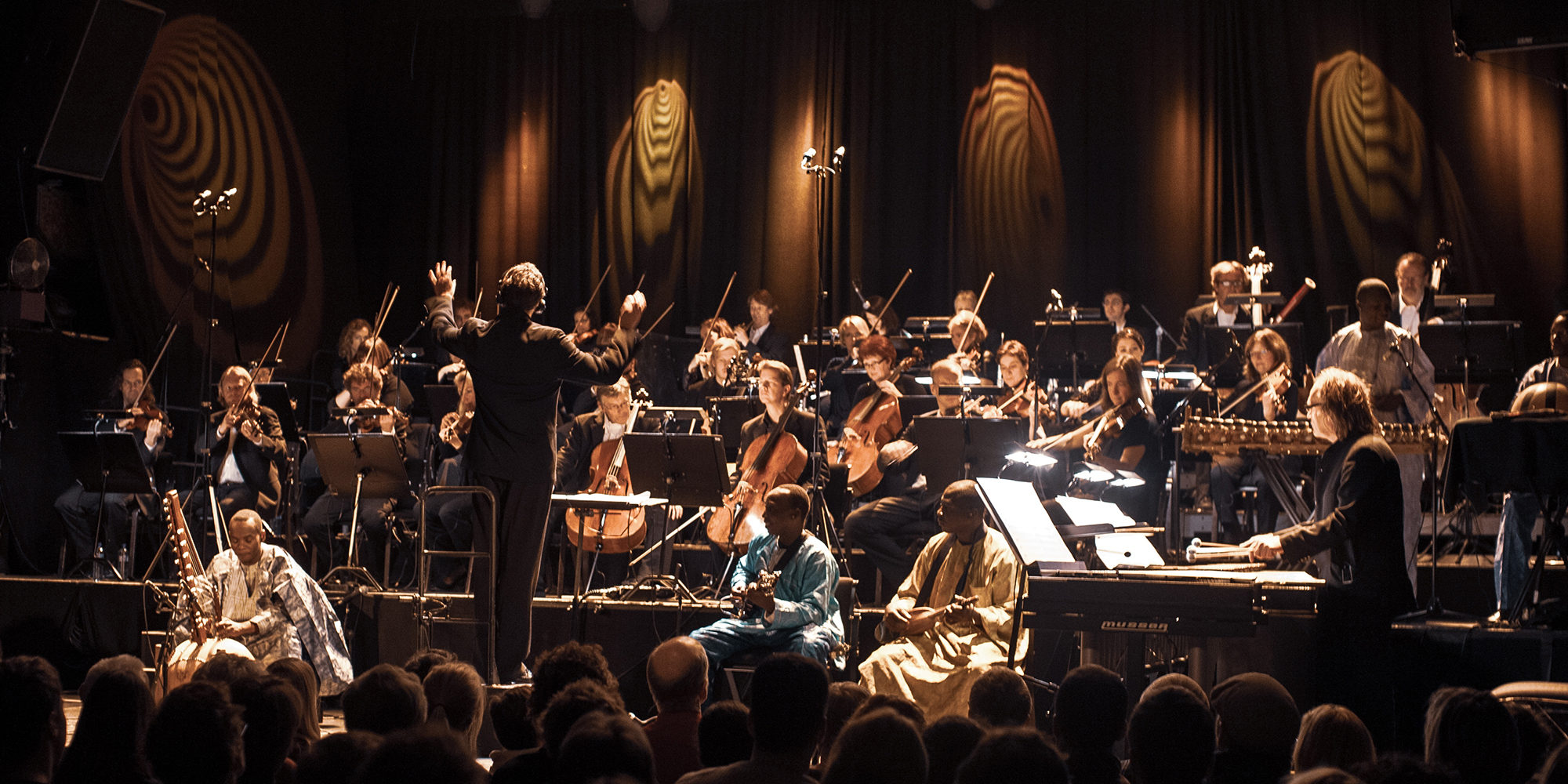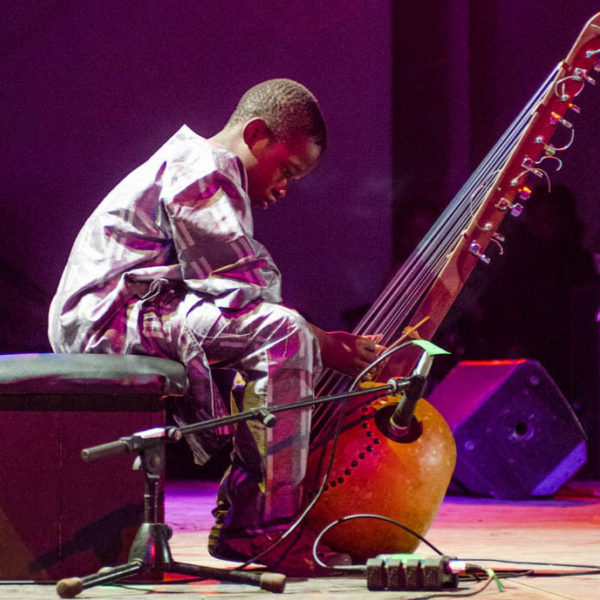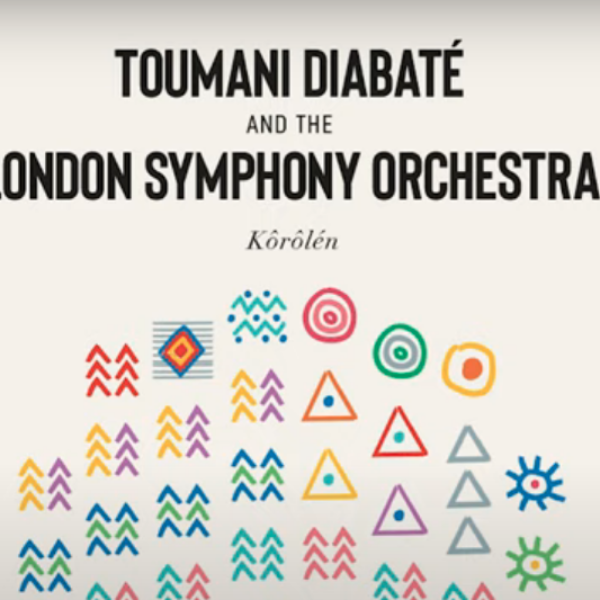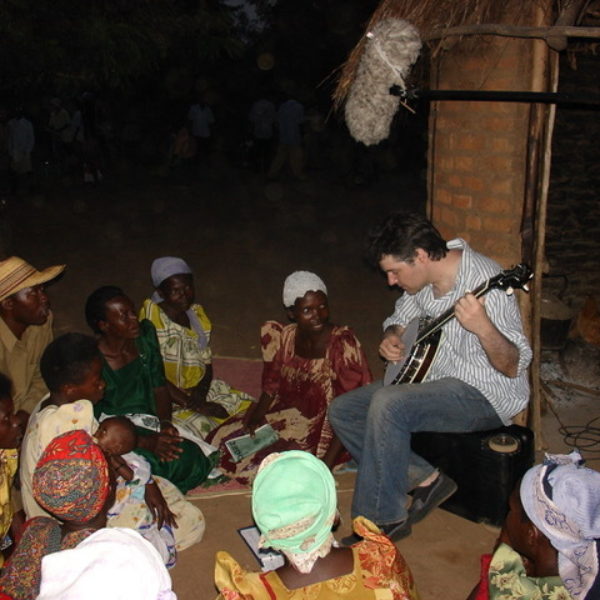In October 2008, at the Barbican Center in London, the London Symphony Orchestra took the stage with some unusual guest artists. Renowned Malian kora player Toumani Diabaté and a contingent of his expansive Symmetric Orchestra led the performance of six pieces, including one, “Haïnamady Town,” that Toumani had composed specifically for the project. The idea for this collaboration was originally suggested by the Barbican’s Bryn Ormrod. The LSO’s conductor Clark Rundell headed up the European team along with two young arrangers, Ian Gardiner and Nico Muhly, the latter having grown up listening to African music and was at the time an assistant to Phillip Glass. From there, things moved quickly, and within a year, the musicians took the stage.
Toumani’s six-piece ensemble included Symmetric Orchestra stalwarts Fanta Mady Kouyaté on guitar, Lassana Diabaté on balafon and the late Kasse Mady Diabaté on vocals. These were seasoned Mande musicians all, but they had never performed with a Western orchestra. Indeed this was an entirely new concept. The concert was much praised at the time, but no one who did not attend one of the six performances staged that year—each with a different orchestra—could actually hear the music. Until now.
Thirteen years later, World Circuit has released Kôrôlén, the complete Barbican concert. Afropop’s Banning Eyre reached Toumani by Zoom in Abidjan, Cote d’Ivoire, where he has spent the entire year of the pandemic, to discuss the project. Toumani’s recounting was a surprise in a few ways, notably the near complete absence of rehearsal behind this lavish and flawless performance. Indeed the album offers an entrancing marriage of subtle and lush orchestration and the easy, effortless flow of Mande griot music. All of which begs the question of why it took so long for this album to be released. While this interview does not entirely answer that question—one suspects it’s a long story that would take some digging to master—this conversation between old friends does offer poignant insight into an album that adds a proud new entry to the recorded repertoire of Mali’s preeminent master of the kora.
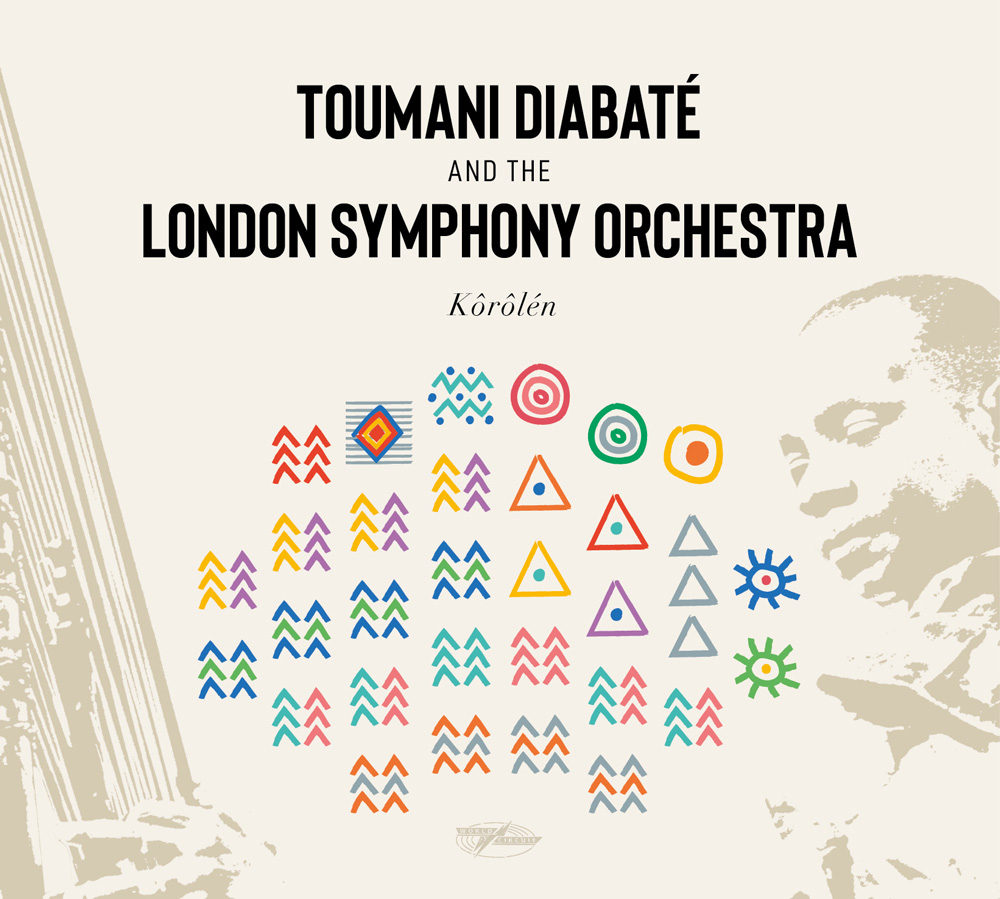
Banning Eyre: Toumani, so good to see you.
Toumani Diabaté: It's good to see you.
I understand you are still in Abidjan.
Yes. Because it's really not that secure in Mali. There are always blackouts with no electricity. People are having a hard time now. So I got a chance to come here and work on my album, to finish my album. This is a new album, very different from Kôrôlén.
Well, I want to talk about Kôrôlén, but to start out, tell me what you're working on now.
This is with the Symmetric Orchestra, a different one with lots of collaborations. I started to record it in Mali. Then I moved to Abidjan to finish, to put horns, and overdub percussion and some more voices. So that's why I'm here now. But then at a certain point, we needed to stop working because of COVID-19. So we had to stop for months. Then we started up again and had to stop again. You know how it is. It's not easy. But now it's done. So we are sending the music to Geneva for mixing. But our sound man couldn't go. I couldn't go. No one could go because the border is closed. So it's kind of crazy. The guy is working in the studio there in Geneva. He's sending music, I listen to it, and I have to tell you, it's not easy to mix a big band.
Especially if you're having to do it over the phone or Zoom.
Yeah, so that's my problem. Sometimes the guitar is missing. Sometimes the bass sound is missing. Or a little bit of djembe is missing. So we need to talk and try to fix it on the phone. Details… He's a really good sound man, but he doesn't know about African music.
A familiar problem.
You know what I'm talking about.
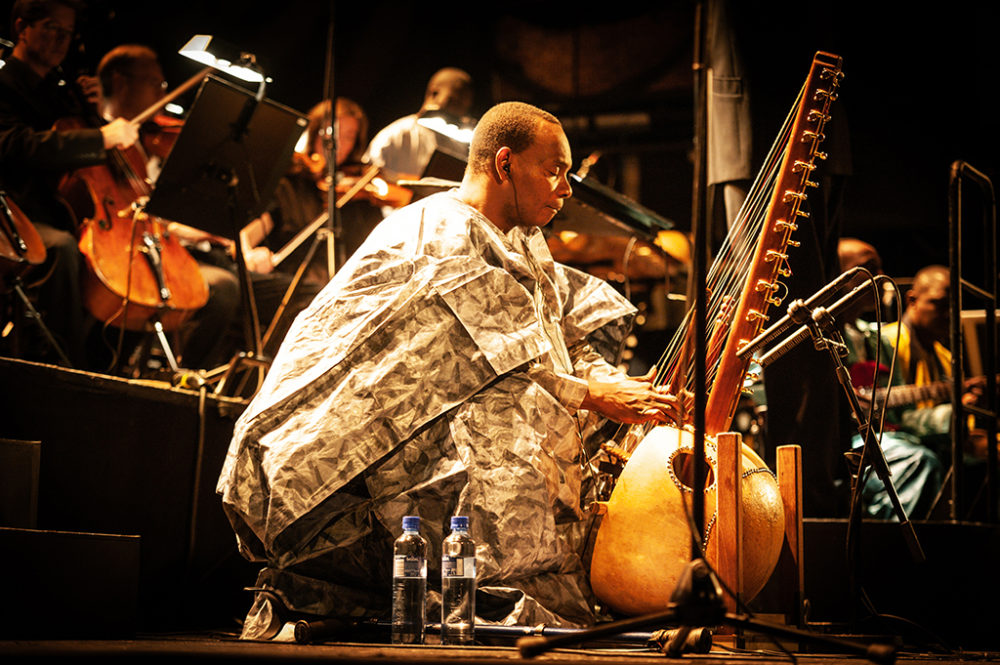
I do. But let's talk about Kôrôlén, which I understand goes all the way back to 2008. I bet you were wondering if it was ever going to be released.
Yes. But finally, finally, thank God. It was a new opportunity for me, and for the kora, and for Mande music. In a way it is a continuation of In The Heart of The Moon, my collaboration with Ali Farka Toure. This project was a blessing, and it's also a revolutionary album. You know me. I have always wanted to move the kora onto a different level. You remember when we were in Athens, Georgia, working on Kulanjan with Taj Mahal.
How could I forget? You invited me to play guitar on the title song.
Yes, and thank you for that. I wanted Djelimady Tounkara’s touch, and you put Djelimady’s touch on “Kulanjan.” [Guitarist Djelimady Tounkara had taught Eyre to play “Kulanjan.”]
And we got to play that song live a couple of times, a great experience for me. But back to Kôrôlén, how did the idea start?
Well, I met Clark [Rundell] the conductor and I told him that my dream was to move my music into the classical music way. Classical music is a different world, with big audiences. So why can't the kora go there? Because I know that Africa has its own classical music also, even older than Bach and Mozart and Beethoven. But we cannot say today that African music is only dance. No. Western people need to know that we have different styles, and very old styles.
So let's stop talking about slavery and all that. Let's move on. Let's talk about culture. Let's put the thing together. If you listen to Kôrôlén, the London Symphony Orchestra became part of us. They did not play kora music. They brought their own melodies and harmony. That kind of arrangement was missing in this kora music. So Kôrôlén is my music, Mande music, but it has also become the music of the London Symphony Orchestra.
It's a beautiful marriage. It feels very natural. Tell me what the word Kôrôlén means.
Kôrôlén means ancestor, something very old. Because people don't know that Africa has had a classical music.
Right. I remember the ethnomusicologist Eric Charry pointing out that a millennia ago, griot musicians worked in courts, and they didn't have to do any other work. So they could spend all their time developing their music. I think that's how kora music and other kinds of griot music became so advanced. For Eric, that made it essentially a classical music.
But you know, I only played with the London Symphony Orchestra one time. Only one time. We sent them the music three weeks before. They started to rehearse on their own, and I arrived in London with my little band the same day as the concert. We went straight to the Barbican before the door opened and the concert happened. We had only one hour to rehearse.
Only one hour? And that is what we hear on this record? That’s incredible.
Yes. Yes. No overdubs. No going to the studio. It's a live recording. With just one hour rehearsal. I had never played before with them. They had never played before with me. They had never actually seen the kora. And when we were performing the concert, they all had papers before them, their music. They looked at the paper, and they played. And at the same time, Fanta Mady Kouyaté [on guitar], Ganda Tounkara [on ngoni] and Kasse Mady [vocals], we didn't see anything, no papers. That's the reason we had to call it Kôrôlén, because we did not need to read or write in order to play.
You were doing it the way your ancestors did.
That's right. So they were reading the melody and the harmony they had to put into my music, but we didn't need to see anything. Just like Djelimady. He doesn't need it. You can put the papers in front of him and say, "Play." Djelimady cannot read it. So, you see, this is a revolution. This is very unusual in classical music. Everyone has their music written down on paper. And the conductor is there, and then you play. But it was different for us. If you listen, you can see that the kora still has its place. The kora is there. My improvisation is there. It's like we'd been together for 10 years, but it had never happened before.
That’s true. I had the impression that a lot of rehearsing had gone into this. I did not realize that you had had so little rehearsal. Quite astounding. I understand that you also worked with the Liverpool Symphony Orchestra. Did you get more time to rehearse with them?
No. It was the same story. We arrived in Liverpool, and it was a different orchestra, different level, different style of playing. That was the first concert in my life playing with an orchestra, and the next day we moved from Liverpool to London. And it was a different orchestra. So each concert, a different orchestra, a different style of playing. I really appreciated the London Symphony Orchestra, because they have a touch, a sensational touch with the music. They were both great, but everywhere is different. I was excited, but I was also a little bit nervous before the concert.
I would imagine so, with only one hour to rehearse.
Yes. So I had to tell my band, my brothers, I said, "Look, Kasse Mady, Fanta Mady, you need to listen. You need to be careful. You need to understand. You need to listen more, with an open mind. But be confident in yourself. Yes, it's brand new, but be yourself. Just be yourself. Play ‘Mamadou Boutiki’ the way you usually play it. We are going to find the meeting point."
So after the concert, we’re all looking at each other. "What's going on? What's going on? Are you happy?” “Yes, we are happy. Yes. We've done it." When I listen to that today, I ask myself, "It was me playing like this? Me playing the kora like this?” I've never told that to anyone, but I asked myself, “Is this me, Toumani, playing this way. I don’t believe it.” But yes, this is me.
I can understand that. If you only performed this stuff a few times, 13 years ago, it's understandable but you would feel that way. But it sounds so natural. I am curious about the role of the conductor. He's the one who has to kind of tell the orchestra when you or one of your musicians is improvising. They don't know how long it's going to be before they have to come back in with their parts.
Exactly.
That's a very interesting challenge for him. And he also conducted you guys, right? Did he go to Kasse Mady and signal that it was time for him to sing?
Exactly. He would be giving a cue to Kasse Mady, and then giving me a cue. On stage I remember that the conductor kind of forgot me. Does he think I'm on stage? Yes or no? He was not familiar with African music. He didn't know about kora music. It was just a blessing that it worked out. There was something magical that happened on this project. The orchestra didn't know about kora music. We Malians in the band didn't know about classical music. Kasse Mady didn't know anything about classical music. I didn't know much about classical music. Ganda Tounkara never knew about classical music.
So that meeting on the big stage was sold out. I imagine that the audience didn't know what had happened before. They were thinking it was a regular concert. The musicians had had time to rehearse together, blah blah blah. But it was not like that. They didn't know the real story. And we didn't have the chance to tell them that. So I am happy to tell you, brother, to tell to the people what happened in the dressing room of that concert.
Such an amazing story. But I'm curious about how the London musicians prepared. I understand that they had a couple of your albums, In the Heart of the Moon and Mande Variations. I gather that the young arranger Ian Gardiner understood that you and your musicians would improvise, and that that had to be built in somehow. Still it seems like everybody was taking a pretty big chance to only allow one hour rehearsal. Let me ask you this. Did you hear recordings of their arrangements so you would have some idea of what to expect?
Clark met me in Madrid many months before the concert. But it was just for one hour. He landed. He came to Madrid to meet me. And he had a recording of the orchestra. I listened to it with him, quickly, and then he went back to the airport and flew back to England.
What was that conversation like?
He said, "O.K., Toumani, the arrangement and everything is done. Listen. This is what I've done with the orchestra. You can listen and if you have any comments, let me know." So I listened. But quickly, very quickly. But for one song, “Mamadou Kanda Keita,” the song with Kasse Mady, I was very curious to hear the music without the voice. So he said, "O.K., here's the music. Listen to it and let me know." So I listened. But I was the only one there, with Saul, our manager. No one in the orchestra listened to it, no one in my band. No one until Liverpool and London. Even me, I didn't get much time to listen to it. Because I was in the midst of a tour with the Symmetric Orchestra, so I was very busy. This was in the beginning of 2008.
And then the concert was later that same year.
Yes. The arrangement had been made by Ian and Nico Muhly [then assistant to Phillip Glass]. Then they gave the music to Clark who brought it to me in Madrid. I told him I wanted to listen to the music, so he brought it. But it was just quick. Clark did not even have a room in the hotel. He just flew in to meet me in the hotel. "O.K., Toumani, this is the music." And it was not really a good recording. It was a rehearsal. We listened to one song and he had to go back to the airport to go back to London. Very quick one. The difficult thing was the Kasse Mady song. It was very unusual for him to sing in that kind of situation. So I had to take time to rehearse with him. I had to sit down with Kasse Mady and say, "O.K., you have to start here. You've to stop here. You have to go from here to there." And I gave him the recording of that song, and then I rehearsed with him, and he recorded himself, and he started to rehearse on his own.
That was before we got with the orchestra, but when we got with the orchestra, we didn't really have the time. Even in Liverpool, there was no time to rehearse. And then the next day, we travel the distance between Liverpool and London. We got to London around 2 o'clock, 2 or 3 p.m. And the concert was at 7. So there was no way to rehearse. And you know, the orchestra, it's not like a band.
Sure. It's much more formal and disciplined.
Yes. But I want you to know that when we did this, it was not with the idea to record and make an album. It was just going to be a performance. The Barbican Center paid the fee for Toumani and the band and the orchestra for this project. And this was not my first project at the Barbican Center. I had been there with Sidiki [his son], and with Damon Albarn. I had been to the Barbican Center with the Symmetric Orchestra, and with Tony Allen and Africa Express. But this was a different project. We didn't know how it was going to turn out, so I told Saul to tell the organizers that I wanted to record the concert. But they said no. No way.
Why not?
Why not? I told them I just wanted to have a copy. This was my first time to play with them. This was a revolution coming out. I wanted this for my own archive. I just wanted to have a copy of the concert. They said no. “If you want to have that, you need to pay 25,000 pounds.”
Oooh! So how did the record get made?
I spoke to the sound man of the concert. This was my sound man, Johannes [Bellinck]. I said, "Johannes, listen, record it. The orchestra will not be plugged in. But the kora needs to plug in. Fanta Mady’s guitar needs to plug in. And Ganda’s ngoni needs to plug in. Fode and the calabash needs to plug in.” We all needed to be amplified. So I told him to record it for my own archive.
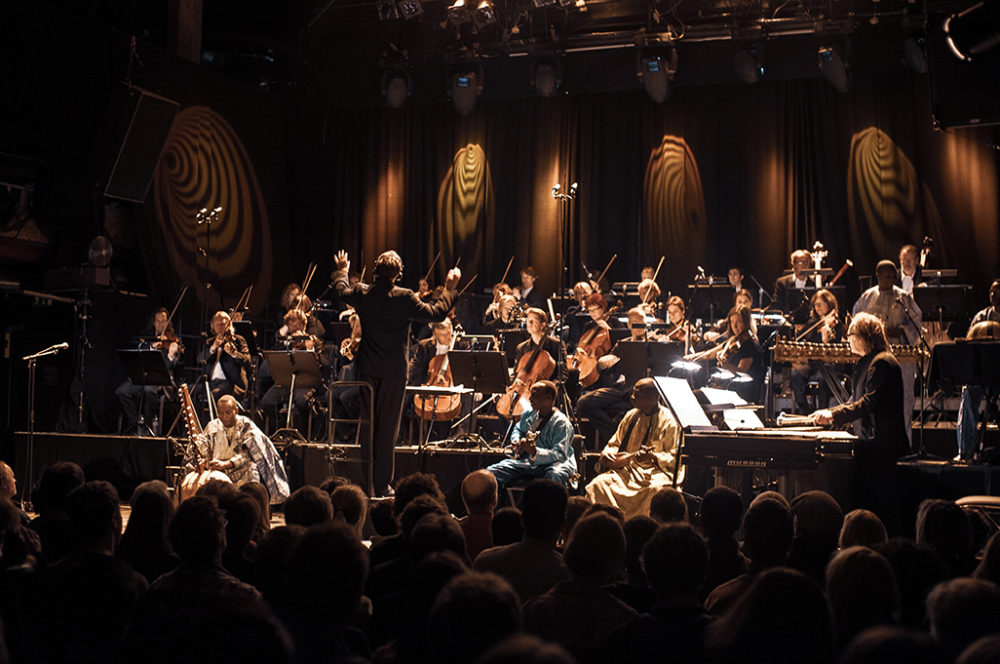
So he just recorded right off the board, and that's what we hear on this record.
Exactly.
But they wanted 25,000 pounds. I think I'm starting to understand why it took so long for this record to come out. How did you get from that situation to actually releasing?
Well normally, this is the law. When you're playing with an orchestra and you want to record it, you need to pay. There hadn't been any conversation about recording, or releasing it. But I let them know that I really wanted it for my own purposes, and finally, they said, “Yes. O.K.” But that was not the reason it got released. Nick Gold wanted two or three more songs to be recorded. That's the reason that the album didn't come out. I believed in this project. I was really excited that this project could become a record. But Nick was saying, "O.K., Toumani, we need two more. There are only six songs. I need two more songs to make it eight." But finally, I told him, "If you don't release this, other people will do the same project. Listen, I think the six songs is already good. It's good enough."
It was going to be very difficult to arrange for recording more songs.
Exactly. Well, there were other concerts. The first was Liverpool. London was the second one. And then I went to Spain to Cartagena and I played at a festival there with another Symphony Orchestra. And we went to Norway, to Oslo, to play with the Oslo Radio Station Symphony orchestra. That was actually a recording studio at the radio station. And then I also went to Chicago to play with the Chicago Symphony Orchestra at Millennium Park. There were 10,000 people there.
But none of that is on the record. Why not?
I told Nick, I said, “This is something very good. Let's keep this and let's move on. Otherwise somebody is going to steal this idea. This is historic.”
So did you not think those other performances were as good?
No. They were good. They were all good. Really good. But other than Oslo, I don't think any of those other concerts were recorded. Nothing. The idea was to record and release the one with the London Symphony Orchestra.
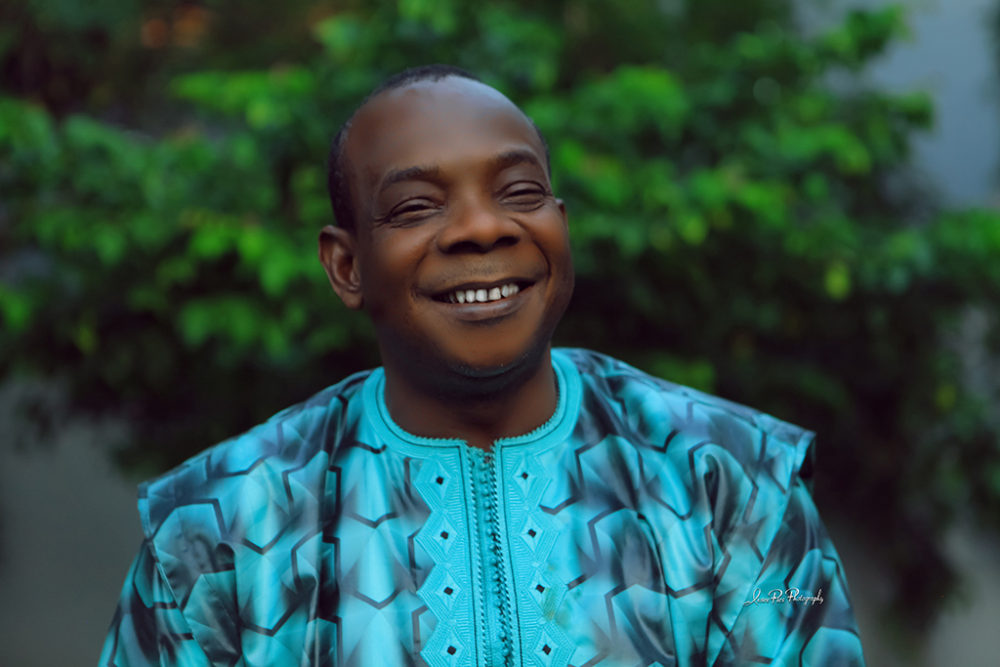
Toumani, let me ask you this. What do you think your father would have thought of this record?
He would've said, “Fantastic, great.” I stayed in the traditional way. I stayed in the original, traditional way, but still with an open mind with my kora. So I think he would be very happy with this.
Well, it's wonderful to talk with you. I look forward to hearing your new work. I hope to get back to Mali soon.
Thank you. Thank you so much. It's always a pleasure to speak with you.








